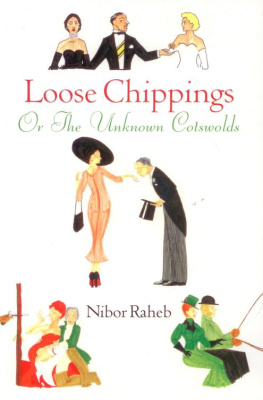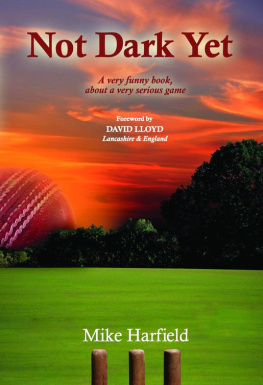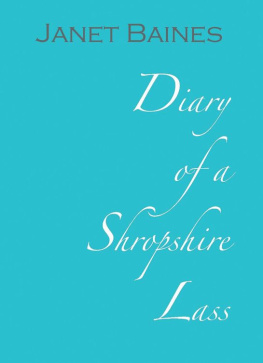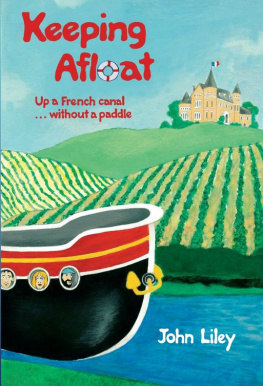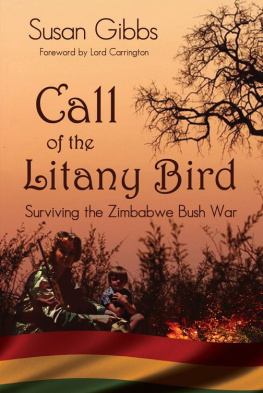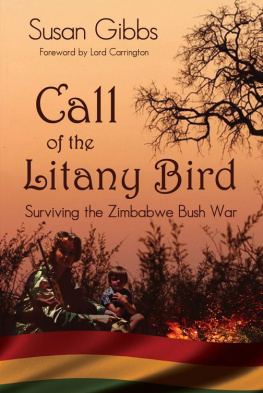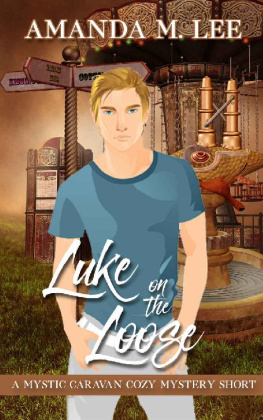Nibor Raheb - Loose Chippings. or The Unknown Cotswalds
Here you can read online Nibor Raheb - Loose Chippings. or The Unknown Cotswalds full text of the book (entire story) in english for free. Download pdf and epub, get meaning, cover and reviews about this ebook. year: 2013, publisher: Perseus Books Group;Bene Factum Publishing, genre: Detective and thriller. Description of the work, (preface) as well as reviews are available. Best literature library LitArk.com created for fans of good reading and offers a wide selection of genres:
Romance novel
Science fiction
Adventure
Detective
Science
History
Home and family
Prose
Art
Politics
Computer
Non-fiction
Religion
Business
Children
Humor
Choose a favorite category and find really read worthwhile books. Enjoy immersion in the world of imagination, feel the emotions of the characters or learn something new for yourself, make an fascinating discovery.
- Book:Loose Chippings. or The Unknown Cotswalds
- Author:
- Publisher:Perseus Books Group;Bene Factum Publishing
- Genre:
- Year:2013
- Rating:5 / 5
- Favourites:Add to favourites
- Your mark:
- 100
- 1
- 2
- 3
- 4
- 5
Loose Chippings. or The Unknown Cotswalds: summary, description and annotation
We offer to read an annotation, description, summary or preface (depends on what the author of the book "Loose Chippings. or The Unknown Cotswalds" wrote himself). If you haven't found the necessary information about the book — write in the comments, we will try to find it.
Loose Chippings. or The Unknown Cotswalds — read online for free the complete book (whole text) full work
Below is the text of the book, divided by pages. System saving the place of the last page read, allows you to conveniently read the book "Loose Chippings. or The Unknown Cotswalds" online for free, without having to search again every time where you left off. Put a bookmark, and you can go to the page where you finished reading at any time.
Font size:
Interval:
Bookmark:
This book is dedicated to M, without whom the Author would never have discovered the Cotswolds or been inspired by its extraordinary inhabitants.
No characters recorded in this book are intended to represent or bear any similarity to any living persons known or unknown to the author; and while he would have much enjoyed knowing many if not all of them, the existence of such people would be the merest of coincidences for which he can bear no responsibility. All that can be noted is the strange fact that history does on occasion repeat itself, which is why a knowledge of the subject is of such vital importance to every generation if the errors of the past are not to be repeated eternally.
History happens where the wind blows.
Despite our best or worst intentions, events have a way of choosing themselves rather than letting us orchestrate them. And when things go badly wrong, we often say its an ill wind blowing.
These are tales of the windswept uplands of the Cotswold Escarpment that rises high above the eastern side of the Severn Valley and bears the brunt of the Atlantic Westerlies as they sweep in over Wales and across our beautiful green island. They bring with them glorious cloud formations of every kind that scud or billow or drift across the patchwork of rolling drystone-walled fields and copses, villages and woods, that form an almost unique landscape that attracts visitors from literally the ends of the earth.
Sometimes those winds howl and shriek through the Gloucestershire woods, and people huddle by their firesides glad of their thick stone walls and cosy hearths; othertimes they waft and gently breeze, zephyrs of sweet springtime or summer air, and the shining countryside smiles in the bright sunlight.
Folk here have always caught the mood of the sky and lived by its vagaries, just as they have contended with the capriciousness of their history. They see the winds as their inheritance, that have brought in their wake so many and varied rulers and their armies; and while it is the kings and princes, the great soldiers and the occasionally turbulent priests, whose names are recorded in the annals for all time, it is the folk who inhabited the land, the silent and often unwilling majority in whose name their leaders waged their wars, who made their conquests possible, who suffered their defeats, and who continued simply to exist, unrecorded, as the helpless witnesses to their often terrible times.
But history is not all gloom. It has its gaiety, its tender moments, its amusements, its secrets, and indeed so many unexplained and inexplicable events that we are left in those most enchanting realms of conjecture that free the imagination and, thereby, the spirit. These are but random excerpts, based on anecdote and hearsay, from that secret history in a part of England that is at once ancient, mysterious, steeped in arcane traditions, and quite extraordinarily picturesque and fascinating.
These are the Unknown Cotswolds.
It does rather seem that the greater part of human history consists of an endless catalogue of battles: of invasions, conquests, occupations, pogroms, resistances, revolutions, counter-revolutions, and the general imposition of will by force majeure on the principle of might is right whenever and wherever the opportunity arose, which was pretty constantly. It seems that conflict is embedded indelibly in Mans nature, and that all his acts are to a greater or lesser degree adversarial. Indeed this may well explain the absence of visits to this planet from any superior technical civilizations, who may have examined our behaviour over the centuries and concluded we are a deranged species that is better left ring-fenced and quarantined, prevented thus from colonizing and thence contaminating the Universe with our violent tendencies!
For some reason, and surely it cant have been the climate, there was an endless historical line-up of candidates eager to invade England and often thereafter to murder or evict its erstwhile inhabitants.
Way back in AD 43 the Romans rowed over from Gaul and started building roads, villas, and towns all the way up to the Scottish border. It took the local Brits, in the form of the legendary Boudicca (Boadicea to anyone educated before about 1970), almost 20 years to cry enough! and, in AD 61, to revolt. Fat lot of good it did them, other than inspiring a few rollicking movies almost 2000 years later, but the Scots proved more unmanageable and so between 122 and 126 AD Hadrian had his famous wall built to keep them out. That didnt really work either, as a brief glance at the composition of almost any of the British Cabinets of the 20th and 21st centuries will testify.
But the Romans were only the beginning of the uninvited molestment of ancient England. In 449 AD the Jutes invaded Kent and the hop industry was kick-started (the Romans had already planted vineyards right across the country, even as far north as York; and to this day the most successful English wines rather few, it must be said! are to be found on sites that were originally Roman), and just half a century later, in 500 AD, the Angles and the Saxons piled in after them. The melting-pot society was under way, and those who didnt like it probably ended up in the pot themselves, figuratively speaking.
Then almost 300 years later, in the 790s, the Vikings (G.K. Chestertons great beautiful half-witted men from the sunrise and the sea) began their raids, which intensified in the mid-830s, so that by 860 the Danes had established a North British Kingdom and serious confiscatory taxation began in the form of the iniquitous Danegeld.
The Danes were real go-getters. At the turn of the first millennium the splendidly-named Sweyn Forkbeard of Denmark saw off poor old Olaf of Norway at the Battle of Svolder, and Norway became Danish. Meanwhile Ethelred II was on the throne of England, where in 1013 Sweyn led a second Danish invasion and kicked him out. Ethelreds patience was hardly tried, however, as within a year of his exile the Forkbeard was called up to Valhalla, and Ethers politely accepted an invitation to return and resume kingship as usual. Poor Ethelred the Unready! In 1016, within just a year of his return, he was replaced by Edmund Ironside; and then bad luck for Edmund too, for in the very same year he was knocked off his perch by Sweyns son Knut, he who we know as Canute who allegedly instructed the tide to turn back. This was in fact a very clever trick: you place your chair (or your throne if youre a king) just above the high water mark, and when the waves lap just beyond your boots you regally command them to withdraw which, unless you have miscalculated the high tide mark or are ignorant enough to have chosen a Spring tide, they will dutifully do. And if you get it right, it doesnt half impress the natives!
Well, Knut had been unimpressed enough by the situation in England to have decided to invade it himself, and this created a line-up of Danes versus Saxons, Angles, & Jutes, with presumably only a vestigial remains of Ancient Brit population, if indeed any at all.
Why do I recount these things? To illustrate just how and indeed why there were so many early influences upon our English landscape, and later to show how, while the kings made the headlines in the mainstream of history, it was that countless army of footsoldiers and camp followers who made the realities of local history, who founded the folklore, and who in many cases became legends themselves.
Knut was the first ruler to divide his fief into an early version of devolved government. He created four earldoms in Wessex, Mercia, East Anglia, and Northumbria earls had real clout in those days and he left them to administer his conquest while he pushed off back to Scandinavia where, in 1028, he captured Norway again just as his Dad had done back in 13. But on his death in 1035 the Danish Empire split, as empires usually did when the strongman was no longer at the helm, and his bastard son Harold Harefoot ruled England as Harold I. Anecdotally, five years later Macbeth became King of Scots, lasting 17 years until his defeat by Malcolm Canmore at Lumphanan. Never a moments peace!
Font size:
Interval:
Bookmark:
Similar books «Loose Chippings. or The Unknown Cotswalds»
Look at similar books to Loose Chippings. or The Unknown Cotswalds. We have selected literature similar in name and meaning in the hope of providing readers with more options to find new, interesting, not yet read works.
Discussion, reviews of the book Loose Chippings. or The Unknown Cotswalds and just readers' own opinions. Leave your comments, write what you think about the work, its meaning or the main characters. Specify what exactly you liked and what you didn't like, and why you think so.

